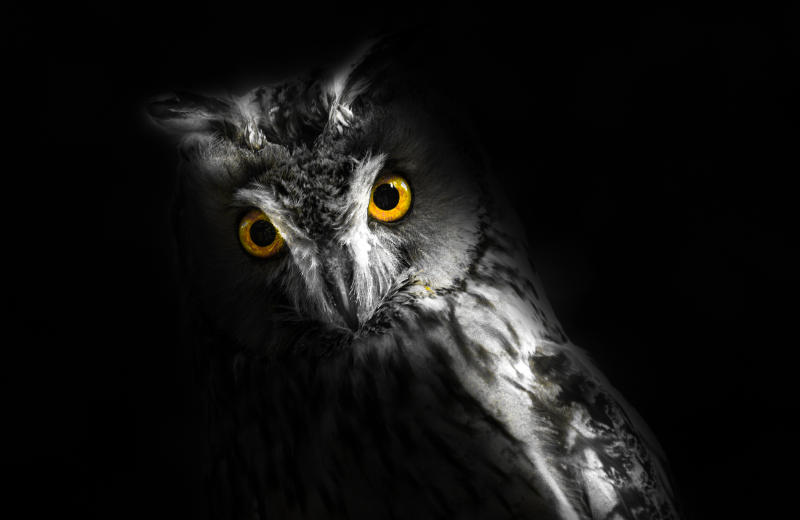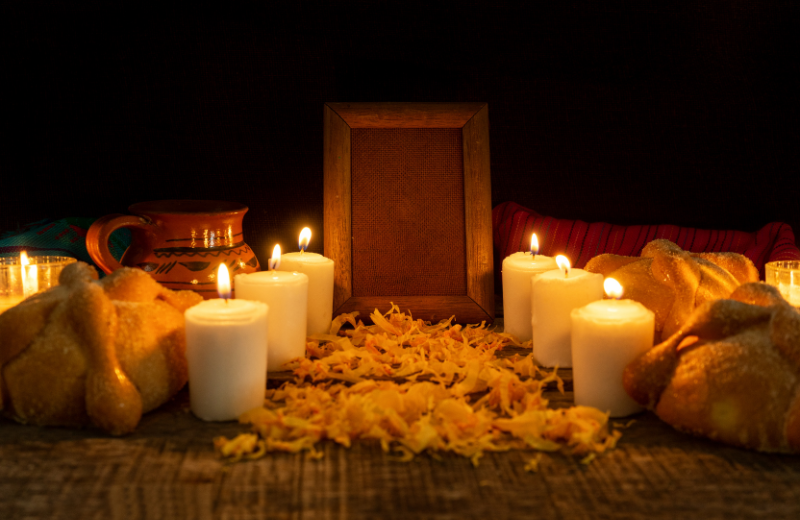Nyx, the Greek goddess of the night, is a fascinating figure in ancient mythology. Unlike many of the better-known Olympian gods, Nyx is one of the primordial deities, which means she existed long before the Olympians rose to power. Born from Chaos, the very void from which all things sprang, Nyx embodies the mysterious and powerful nature of night itself. She is both alluring and formidable, a goddess whose presence affects gods and mortals alike. Although not always in the spotlight, Nyx’s role as a goddess and mother makes her a central figure in Greek mythology, shrouded in mystery and worshipped for her power.
Jump to:
Recommended for you!
Best SellersWhat Is Nyx the God of?
Nyx is the goddess of night in Greek mythology. Her influence goes beyond just the arrival of nightfall; she represents all the qualities associated with the darkness—peace, mystery, and sometimes even fear. Ancient Greeks believed she brought the night by drawing a veil over the sky, embodying the transition from day to night and reminding mortals of the beauty and depth that the dark hours bring.
Nyx is also connected to aspects of life that dwell in the shadows, such as sleep, dreams, and death. Her very existence is intertwined with these realms, positioning her as a silent but ever-present force. In mythology, night and day are essential cycles, and Nyx’s role reflects the ancient understanding of the world’s balance between light and dark.
The Myths and Legends of Nyx

Nyx doesn’t appear in many myths directly, but her influence is undeniable. Some stories mention her as a respected and occasionally feared goddess, even among the Olympian gods. In one tale, Nyx’s son, Hypnos (the god of sleep), angered Zeus by putting him to sleep as a favour to Hera. When Zeus woke up, he was furious and chased Hypnos across the heavens. Hypnos found safety by hiding behind Nyx, knowing that Zeus would not dare challenge her—even the mighty king of gods respected her authority.
In Hesiod’s Theogony, Nyx resides in a grand palace at the edge of the cosmos, where she and her daughter Hemera (Day) pass each other in and out of the house, representing the natural cycle of night and day. This harmonious exchange symbolises the duality of darkness and light, underscoring Nyx’s crucial role in maintaining cosmic balance.
What Powers Does Nyx Have?
Nyx’s powers are vast and elemental, stemming from her status as a primordial goddess. She controls and embodies the night itself, able to draw darkness over the world. Unlike gods who wield weapons or tools, Nyx’s power flows naturally from her essence. As a result, she holds an authority that’s often more passive but equally potent. Her influence spans nightfall, sleep, dreams, and even death, showing that she has command over forces that affect both gods and mortals.
Perhaps the most remarkable of Nyx’s powers is the ability to inspire respect and fear even in Zeus. As a primordial deity, she existed long before the Olympians and is therefore beyond Zeus’s control. This independence from Olympus’s rules and power structures made her unique, and Zeus, known for his power, feared her because of it. Nyx’s power lies in her almost untouchable nature.
The Symbols of Nyx

Nyx embodies the beauty and mystery of the night, drawing darkness across the heavens and representing the hidden depths and wisdom that the night offers. Her symbols evoke the quiet strength, serenity, and secrets of darkness:
- Starry Robe: Nyx is often portrayed as a beautiful woman cloaked in a dark, flowing robe scattered with stars. This robe symbolises the night sky itself, representing the calm and enigmatic beauty of the night.
- Veil of Nightfall: She is sometimes shown holding a veil, believed to be drawn across the sky each evening, bringing nightfall. This veil reflects her power to summon darkness and envelop the world in restful quiet.
- Owl: A creature of wisdom and the night, the owl embodies Nyx’s watchful and silent nature. It represents the introspective strength and vigilance of darkness.
- Poppy: Known for its connection to sleep and dreams, the poppy symbolises Nyx’s influence over the dream realm, embodying her association with rest and the mysterious allure of the night.
Nyx’s Relationships, Children, and Family Tree
Nyx was one of the first beings to spring from Chaos, embodying the ancient power of the night. Her family lineage reflects her connection to life’s mysteries and hidden realms:
- Consort Erebus: Nyx’s partner, Erebus, personifies darkness itself. Together, they represent the union of night and shadow, embodying the depths and obscurity of existence.
- Children of the Night: Nyx and Erebus have many offspring, each symbolising an unseen yet crucial aspect of life. Some of the most notable include Hypnos (Sleep), Thanatos (Death), Moros (Doom), and Eris (Strife).
- Influential Offspring: Some of Nyx’s children, like the Fates and the Keres, play powerful roles in shaping human lives. The Fates control destiny, while the Keres are associated with violent death, reinforcing Nyx’s deep connection to life’s hidden and often shadowy aspects.
- Legacy of Darkness: The sheer number and variety of Nyx’s offspring highlight her influence over both gods and humans, reinforcing her position as a goddess linked to the mysterious and inevitable cycles of existence.
Nyx’s Worship and Legacy

Nyx wasn’t as widely worshipped as other gods like Zeus or Athena, but her influence was still deeply respected. Temples and altars specifically dedicated to Nyx were rare, though many people honoured her in their prayers or invocations, especially at night. Ancient Greeks acknowledged her as a force that was always present, acknowledging her through quiet reflection rather than grand ceremonies.
Nyx’s legacy continues to intrigue people today. Her character shows that darkness can be powerful, balanced, and even comforting. Modern depictions of Nyx often celebrate her beauty, strength, and quiet authority, presenting her as a complex deity who doesn’t fit into the straightforward roles of good or evil. Through her representation, Nyx reminds us of the depth and mystery that darkness can bring to our lives, balancing the brightness of day with the calm of night.
Recommended for you!
Best SellersFrequently Asked Questions About Nyx
Is Nyx a good or bad goddess?
Nyx is neither strictly good nor evil. She embodies the night and its mysteries, which can be both beautiful and frightening. Her nature is complex, symbolising the balance between light and dark, and she rarely interferes directly in human affairs.
Why was Zeus afraid of Nyx?
Zeus respected Nyx because she was ancient, powerful, and outside his realm of control. As a primordial goddess, her powers and independence made her a figure he couldn’t dominate or challenge easily, which is a rare status among the gods.
Who is Nyx’s consort?
Nyx’s consort is Erebus, the personification of darkness. Together, they represent night and shadow, with Erebus embodying the dark that lies behind Nyx’s night.
How is Nyx portrayed in Greek art?
Nyx is often shown as a beautiful woman dressed in dark, flowing robes, sometimes with stars woven into the fabric. She may hold a veil to symbolise the approach of night and is occasionally depicted with her children, reinforcing her role as a matriarch.
Does Nyx have any weaknesses?
As a primordial deity, Nyx isn’t known for having specific weaknesses. She represents forces that even Olympian gods respect and fear, especially Zeus. However, her passive nature means she is rarely directly involved in conflicts, allowing others to take centre stage in mythological tales.
Why did the Greeks fear Nyx?
Nyx’s connection to night, death, and destiny made her an enigmatic figure. Even the gods acknowledged her powers with caution, particularly as her influence is subtle and omnipresent. This respect for her powers and her mysterious role as the goddess of night could easily translate to a feeling of fear among mortals.
Who were Nyx's enemies or rivals?
Nyx doesn’t have a specific rival or enemy in mythology, as her role is more passive and observational. However, she is occasionally portrayed as a figure of authority even over the gods, with figures like Zeus showing her respect. Her nature is balanced, making her a neutral figure rather than one prone to conflict.
What is Nyx’s personality like?
Nyx is depicted as calm, reserved, and wise. She is fiercely protective of her children but does not seek to interfere with others unnecessarily. Nyx embodies the nature of night—peaceful yet powerful, introspective yet imposing—a deity who commands respect through her quiet strength and profound influence.
How is Nyx represented in modern culture?
Today, Nyx is celebrated as a symbol of mystery, feminine power, and the strength found in stillness. Her image often appears in art, literature, and media as an elegant, powerful figure. In modern interpretations, Nyx is often seen as a goddess of balance and independence, reflecting society’s evolving understanding of complex, multi-dimensional figures in mythology.
Who is the modern-day equivalent of Nyx?
While there isn’t a direct modern equivalent, Nyx’s qualities of mystery, strength, and introspection can be seen in figures that represent nature, balance, and protection, such as certain nature goddesses, nighttime or lunar deities, or symbolic representations of the night in art and culture.
Study Greek Mythology for £29
Nyx is one of the many intriguing figures in Greek mythology, a goddess who embodies the night with grace, mystery, and quiet strength. If you’d like to learn more about these myths and explore the characters, symbols, and stories that have shaped Western culture, consider enrolling in the Greek Mythology Diploma Course with Centre of Excellence. For a limited time, you can access the course at a discounted price of £29!













